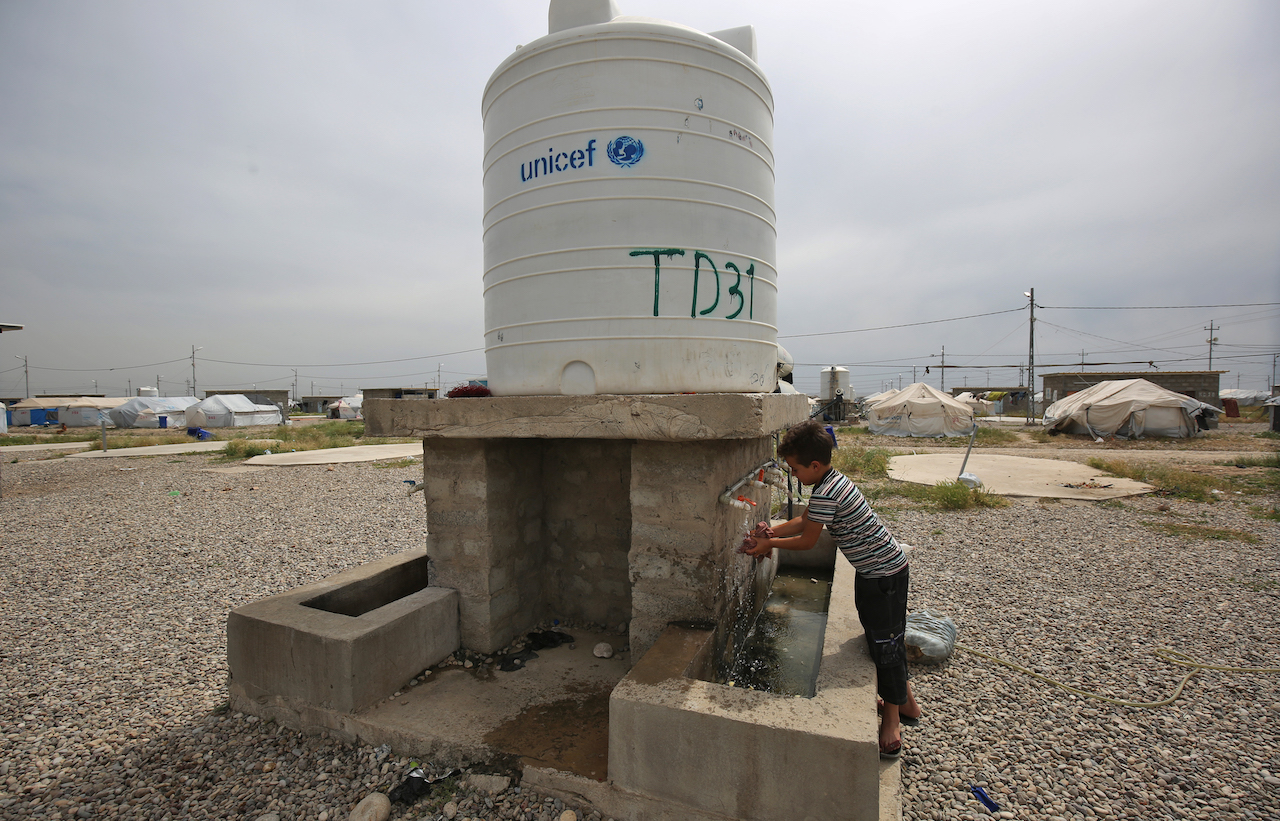Iraq: Closure of Kirkuk camp leaves displaced in despair

The closure of a camp housing internally displaced Iraqis near the city of Kirkuk has left many deeply afraid of being forced to return to areas where they face potential reprisals and hostility from neighbours.
The Iraqi government began closing internally displaced person (IDP) camps across the country last year, but the process accelerated in late October, with camps in Baghdad, Karbala, Diyala, Anbar, Kirkuk, Nineveh and Sulaymaniyah all facing closure.
'If you do go out, they will start shooting at you in the dark - you don’t even know who it is that’s doing the shooting'
- Laylan resident
The move leaves tens of thousands of people at risk.
Many of those living in the camps, where they often ended up after fleeing the onslaught of the Islamic State group (IS), have no homes to return to. Or they fear being targeted as IS sympathisers by other locals or militias, a number of which still control areas taken back from the militant group.
Around 25,000 Iraqis have already been moved out of IDP camps since October, and the closures are still underway.
Stay informed with MEE's newsletters
Sign up to get the latest alerts, insights and analysis, starting with Turkey Unpacked
Doctors Without Borders (MSF), which operates in Kirkuk's Laylan camp, said close to half of the camp had already been closed.
Around 7,000 people were living in Laylan before trucks came to begin dismantling tents and evacuating the residents. The camp was originally established in 2014 after the rise of IS and largely consisted of people from Hawija and Salahuddin province.
Alex Dunne, humanitarian affairs and advocacy manager for MSF's Iraq mission, told Middle East Eye that many camp residents were in panic.
"When we talk to families, the first thing that comes up is security," he said.
"In their areas of origin, these areas are now controlled by different military factions who will be hostile to them due to their perceived affiliation to the Islamic State group, so there’s a real fear on their side that, going back, the community will do them harm."
Dunne shared with MEE a number of testimonies given to MSF anonymously by residents of the camp, in which they expressed their misgivings about being forced to leave.
He quoted one man as saying he was "not eating and [hadn't] been able to sleep" since hearing about the planned closure.
"I’m worried about my family. In the village where I am from, these days after 4pm you cannot leave to travel into town as it is not safe," the man said.
"At 10pm at night you cannot even go out to check on your cattle. If you do go out, they will start shooting at you in the dark - you don’t even know who it is that’s doing the shooting."
'Everything has been taken'
Over 3.3 million people have been displaced in Iraq since 2014, with more than 360,000 people living in informal accommodation. This often includes unfinished and damaged buildings.
A woman in Laylan said her family had not been able to secure any support from the government to rebuild their house, which had been left in ruins and looted.
"Our house in the village has no doors or electricity - only the ceiling is left. No furniture. Everything has been taken," she said.
"I do not have anyone who was in jail or no security issue even. But I can’t go back because of the financial situation.”
'Our house in the village has no doors or electricity - only the ceiling is left. No furniture. Everything has been taken'
- Laylan camp resident
Some residents said they were often stopped at checkpoints by the police or militias because they either had no ID or theirs had expired.
One woman from the town of Hawija near Kirkuk, which was one of the last areas to be retaken from IS, said if she returned she was at risk of being targeted over tribal disputes.
She said that accusations of IS membership were used against people in these disputes, leading to reprisals or arrests.
Perceived IS membership is a grave risk for Iraqis, who could end up facing the death penalty in trials often accused of bias and corruption.
The woman said despite Laylan's limited facilities, it at least had security and water.
"We feel safe, we have security guarding the camp. If someone reports you they have to go through security first and follow the standard procedures," she said.
"This is the problem. No one is taking care of us."
Covid-19 infections
An additional risk facing residents is the Covid-19 pandemic. MSF said at least eight people in Laylan camp had been diagnosed with the disease and were in need of "consistent medical care".
Iraq's health ministry on Sunday said the country had passed 550,000 cases with 1,614 new cases in the past 24 hours and 24 deaths. Of those new cases, 227 were in Kirkuk, the second-highest number after the capital Baghdad.
The country's healthcare system, stretched after decades of war and sanctions, is already at breaking point, and those leaving the MSF-monitored camp will likely struggle to get effective treatment.
"They’re a heavily stigmatised group of IDPs and a result for these IDPs returning them to their areas of origin presents some serious challenges," said Dunne.
Middle East Eye delivers independent and unrivalled coverage and analysis of the Middle East, North Africa and beyond. To learn more about republishing this content and the associated fees, please fill out this form. More about MEE can be found here.






